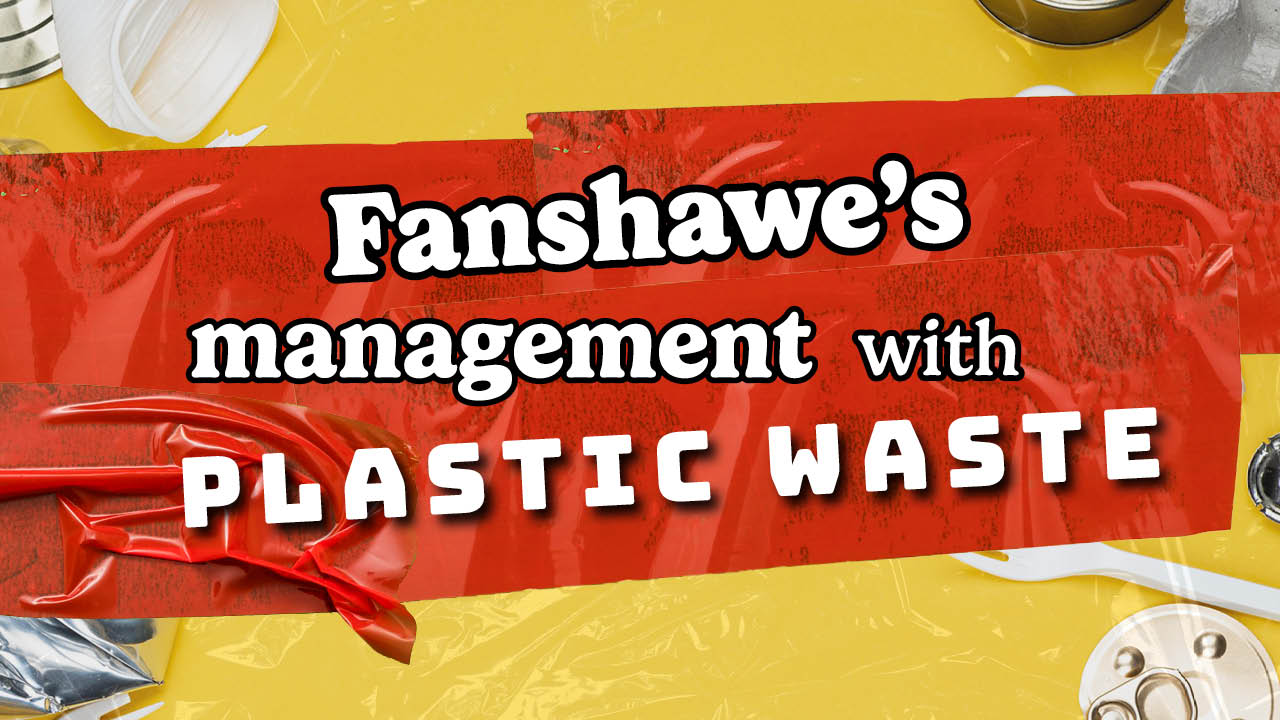Fanshawe's management with plastic waste
 CREDIT: FSU PUBLICATIONS AND COMMUNICATIONS DEPARTMENT
CREDIT: FSU PUBLICATIONS AND COMMUNICATIONS DEPARTMENTOver the course of 2022, Fanshawe College collected nearly 1,200 Metric Tonnes (MT) of plastic waste. That’s about the weight of 504 hippos. The majority of the plastic waste is estimated to be recycled plastic. There is a small portion estimated to be non-recyclable plastics according to Waste Diversion Coordinator Liam Bauman.
According to Bauman, there are still some gaps within Fanshawe’s plastic waste management system.
“We do not have data for our recycling bins and how well those are separated,” Bauman said.
He said that they have the data for London’s landfill bins, which estimates that 38 per cent of plastic thrown in the landfill could be recycled.
“Fanshawe staff and students are doing well, but there is room for improvement,” he said.
Bauman and his team found a small portion of plastic waste collected from Fanshawe that did not make it to the proper recycle bins.
“The plastic that does not get recycled will end up in landfills and will last for thousands of years in those landfills,” he said.
More landfills will need to be created since plastic waste doesn’t decompose.
“Which can lead to loss of biodiversity in the surrounding areas due to the loss of land,” Bauman said. However, he said modern landfills are working to create solutions to these problems.
There are some factors to look at when it comes to plastic waste in our landfills. In 2020, the first field study about how the presence of microplastics can affect soil fauna took place and was published in the Proceedings of the Royal Society. According to The United Nations Environment Programme (UNEP), there is a decrease of species that live below the surface. These species play a crucial role because they help maintain the fertility of the land. UNEP said when plastic particles are trying to decompose, other new chemical properties come into play and will have a toxic effect on organisms.
The amount of plastic waste that Fanshawe collects does fluctuate over the school year.
“Plastic waste does increase when the fall semester starts,” Bauman said.
This is due to there being more students and staff, as well as more services open on campus in the fall semester. Bauman said that in Sept. 2022, they collected around 2.5 MT of recycling at Fanshawe’s Oxford Campus alone.
“This increase was in total recycling, but the increase of plastic would be similar as well,” he said.
Fanshawe has a few ways to help reduce the amount of plastic waste.
“Fanshawe is encouraging staff and students to purchase and use reusable containers,” Bauman said. They are also working with the food services at Fanshawe to move away from disposable plastic packaging to help reduce plastic waste.
“Unfortunately there isn’t really a sustainable threshold for plastic waste. The less plastic waste that is produced, the more sustainable it is,” Bauman said.
In an ideal scenario, he said that plastic waste would be eliminated entirely but that’s not an easy task to do.
“What we have to try and do is to keep reducing plastic waste and to divert the plastic waste that is created towards recycling,” he said.
Fanshawe has been able to divert about 98 per cent of plastic waste from landfills and send it to recycling facilities. Bauman hopes this is where the plastic waste can be reused in plastic products as a replacement instead of new plastic being made.















